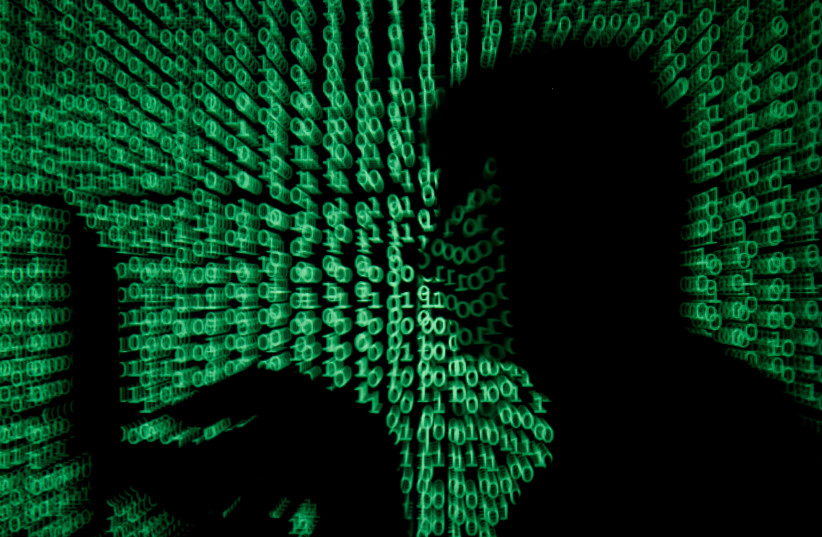A secret mass surveillance program at the Central Intelligence Agency (CIA) gathered records belonging to American citizens while collecting financial data as part of the fight against ISIS, according to newly declassified documents released last week.
The data was collected as part of surveillance operations by the CIA targeting foreign entities as part of the fight against ISIS by collecting financial data, according to the partially declassified "Deep Dive" reviews conducted by the Privacy and Civil Liberties Oversight Board (PCLOB).
The board noted that records belonging to US citizens are often intermingled with other records in bulk collections of data, making separating the records in intelligence collecting operations not feasible.
The exact nature or amount of records collected belonging to US citizens was not made clear in the report.
The PCLOB issued a series of recommendations to the CIA in order to ensure that it takes precautions to prevent the unnecessary collection of records belonging to US citizens and to protect any data collected.

Large portions of the documents were redacted. The financial data was collected pursuant to Executive Order 12333, which dictates the "Goals, Direction, Duties, and Responsibilities With Respect to the National Intelligence Effort" in order to ensure that the US receives the "best intelligence available."
Democratic Senators Ron Wyden and Martin Heinrich called on Thursday for new transparency about bulk surveillance conducted by the CIA, after the documents about the mass surveillance program were released. The senators had requested that the PCLOB report be declassified in a letter sent in April 2021.
According to the senators, the bulk surveillance program was conducted "entirely outside the statutory framework that Congress and the public believe govern this collection, and without any of the judicial, congressional or even executive branch oversight that comes from [Foreign Intelligence Surveillance Act (FISA)] collection."
In the April 2021 letter, the senators stressed that the CIA had "secretly conducted its own bulk program," adding that "this basic fact has been kept from the public and from Congress." The program had even been withheld from the Senate Select Committee on Intelligence until the PCLOB report was delivered in 2021.
The senators called in the letter for the nature of the CIA's relationship with its sources and the legal framework for the collection to be revealed to the public, as well as the kind of records collected, the number of records collected and the rules governing the collection and use of the records.
The CIA stated on Thursday that it was releasing the material as part of its commitment to Principles of Intelligence Transparency for the Intelligence Community, a set of principles developed to institutionalize transparency.
It added that after the letter was sent by Wyden and Heinrich, the director of the CIA ordered a review of the Deep Dive reports to ensure that information was released to the greatest extent possible while protecting tradecraft methods and operational sources. The agency stated that it is working to implement the recommendations issued by the PCLOB.
"All CIA activities must be conducted in full compliance with US law," said the CIA, adding that it is overseen by the National Security Act, FISA and Executive Order 12333. The agency added that, under CIA's attorney general procedures, intelligence collectors must take "reasonable steps" to limit the collected data to only what is necessary.
"All CIA officers have a solemn obligation to protect the privacy and civil liberties of Americans. CIA will continue to seek opportunities to provide better transparency into the rules and procedures governing our collection authorities to both Congress and the American public," added the agency.
"What these documents demonstrate is that many of the same concerns that Americans have about their privacy and civil liberties also apply to how the CIA collects and handles information under [the] executive order and outside the FISA law," said Wyden and Heinrich on Thursday. "In particular, these documents reveal serious problems associated with warrantless backdoor searches of Americans, the same issue that has generated bipartisan concern in the FISA context.”
The declassification of the documents in the US comes amid an uproar in Israel concerning the alleged use by Israel Police of the NSO Group's Pegasus spyware to surveil Israeli citizens. Politicians, journalists and businessmen are among the alleged targets who had the spyware placed on their phones by police, according to a report by Calcalist.
An investigation by The New York Times Magazine found that the FBI had secretly bought and tested the Pegasus spyware in 2019 and intended to use it to spy on US citizens. Last summer, the FBI made the decision not to deploy the spyware, according to the report. The FBI later confirmed that it bought the software, but did not use it in any investigation. The CIA also used Pegasus to fight terrorism, according to the Times.
